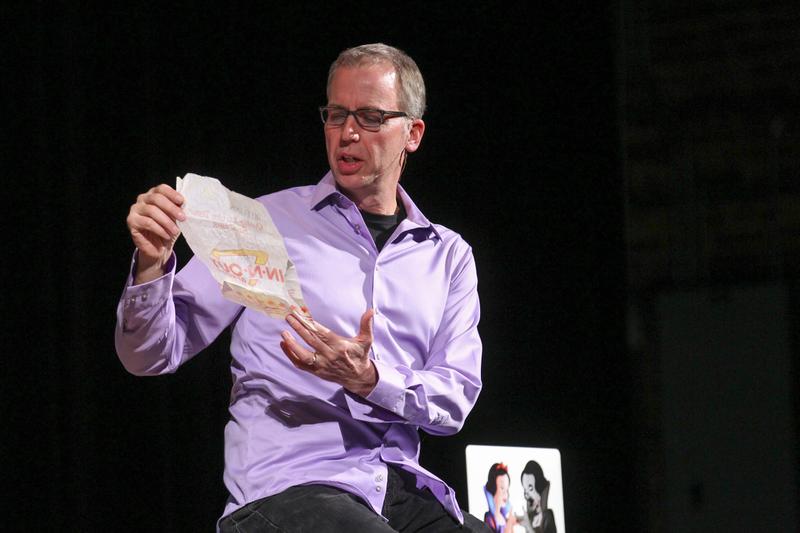
Midway through Monday night’s “PostSecret: An Evening With Frank Warren” event at the Missouri Theatre, Warren explained why he believes the secret-sharing site he founded has had such an impact on so many lives: “We are all part of something bigger, and we are all a part of it together.”
PostSecret is a simple WordPress blog featuring postcards sent in anonymously. Written on each of the thousands of postcards Warren has received since the blog’s inception is a secret –– sometimes something funny, like an embarrassing story or a sheepish confession. But other times –– perhaps more often than not –– the cards feature deep, powerful and painful secrets about things like mental illness, abuse and fears.
The project began in November of 2004. Warren, who resides in a Maryland suburb of Washington, D.C., would wander the streets of the nation’s capital, passing out postcards and “soliciting secrets.” He started the blog as a way to share those secrets with others.
The goal of PostSecret.com, and the goal of the subsequent books and tours and live events, is to create a safe place for people to share their secrets, big and small, and to show everyone that they’re never alone in their suffering.
“Kept secrets are walls,” Warren says. “Shared secrets become bridges.”
PostSecret has given people a way to connect with each other and offer encouragement and support through shared experiences. Warren recounts stories of friends anonymously supporting friends, of relationships restored and of lives changed through the camaraderie and community among PostSecret users.
Warren, the soft-spoken former owner of a document delivery company, has been called “the most trusted stranger in America.” But why do so many people feel comfortable sharing their deepest darkest secrets with a complete stranger?
“It’s sometimes easier to disclose something to a stranger on a train (than someone you know in real life),” Warren says. He receives every single postcard at his home mailbox and says he reads — and keeps –– every submission.
“A lot of effort goes into curation (of the secrets),” Warren says. “I try to select secrets that tell a story.”
When choosing which secrets to post, he arranges his favorites on his coffee table, in search of secrets that are “optimistic, touching, painful and hopeful,” evoking the full range of emotions and spanning across the human experience.
At times, Warren will receive a secret that is shocking or troubling. But, “it’s not my job to censor the secrets,” he says. “(I have a) responsibility to be true to the people who’ve entrusted their stories to me.”
Warren’s commitment to honoring secrets extends to the way he funds the project. While he does make a profit off of book sales and tours, the website is completely ad-free.
“The purpose of PostSecret is higher than a source of revenue,” he says.
Warren also uses PostSecret to raise funds for mental health care organizations, and is himself a volunteer for Hopeline, a national suicide prevention hotline.
After his presentation, Warren solicited secrets from audience members. Some were bashful admissions of embarrassing moments or strange habits. Others were heartbreaking tales of betrayal and hurt.
The lights above the audience were still dimmed, keeping the admissions still somewhat anonymous. Yet, while the audience members might have been strangers, they were united by a shared sense of trust and an acknowledgment that everyone has secrets.
“No one is alone with their secrets, even if it feels like it,” Warren says.